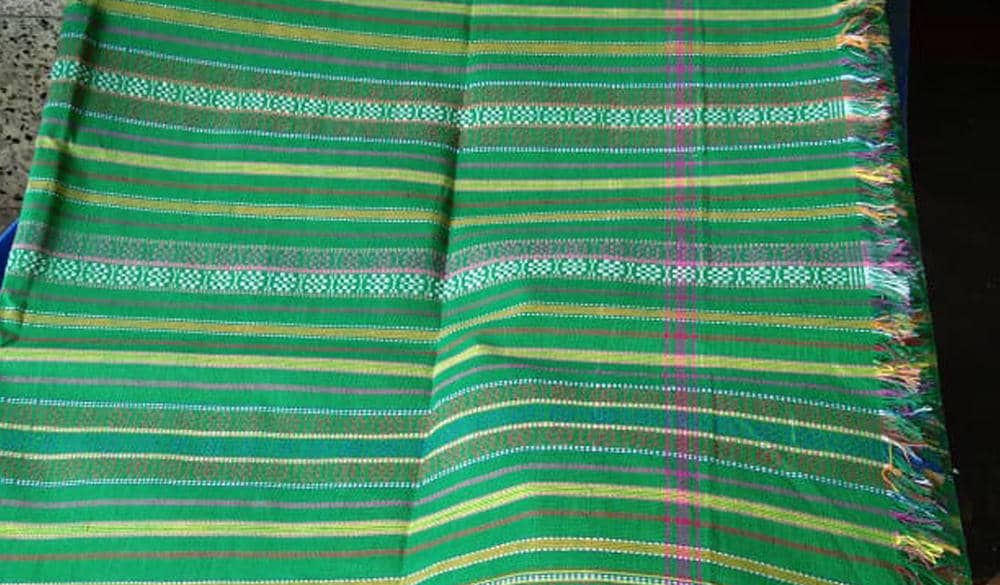Bodoland’s GI tag triumph: 21 products earn recognition, tribal communities set to reap benefits

In a landmark achievement, the Bodoland Territorial Region (BTR) has secured 21 Geographical Indication (GI) tags for its traditional products, textiles, crafts, and agricultural items, marking a new era of recognition and empowerment for the region’s indigenous communities.
Thirteen GI acceptances were first published on November 29, 2023, followed by eight more on May 31, 2024. What began as an effort to preserve Bodo heritage and protect cultural motifs from appropriation has now evolved into a broader mission: reviving dying practices, empowering youth, formalising unorganised sectors, and strengthening the region’s economy.
The initiative was spearheaded by five young Bodo entrepreneurs—Kansai Brahma, Nachani Brahma, Pulak Basumatary, Swapna Muchahary, and Ling Narzihary. Their research initially covered hundreds of items before narrowing down to over 50, of which 21 were filed for GI applications. Collaborating with Advocate Professor Ganesh Hingmire, a two-time national awardee for GI work, the team turned Bodoland’s dream into reality.
Their vision aligned with one of the BTR government’s top priorities since its formation in 2020: securing recognition and protection for indigenous knowledge and heritage. Within a few years, Bodoland has emerged as a frontrunner in India’s GI movement.
From Bodo Dokhona (traditional attire) and handloom crafts to unique cuisines, silks, musical instruments, and horticultural products, the GI tags certify authenticity, uniqueness, and regional origin. This recognition prevents imitations, boosts consumer trust, and ensures that only genuine producers can use the names.
For Bodoland’s artisans and farmers, the tags are more than prestige. They promise – legal protection of traditional knowledge, better prices and markets for local products, preservation of traditions in the face of modernisation and opportunities for women and youth in self-help groups, handloom weaving, handicrafts, and organic farming.
Each GI-tagged product carries a story: a Dokhona’s intricate weave, a centuries-old rice beer fermentation process, or sustainable farming methods. Protecting them means celebrating tribal identity, not diluting it.
In Bodoland, weaving has long been the domain of women. GI recognition strengthens women-led self-help groups, helping them secure markets, earn higher incomes, and gain social empowerment. A GI-tagged handwoven Dokhona, for example, will now fetch higher value nationally and internationally, transforming livelihoods while keeping tradition alive.
The BTR government is working with young entrepreneurs to register Authorised Users (AUs) of these GIs. While India has over 600 GIs, only 29,000 AUs exist. Bodoland plans a massive AU registration drive under the CEM’s Special Initiative Scheme, aiming to include more than one lakh artisans, farmers, and weavers.
A mobile app has been developed to streamline registrations. Each AU will be linked to two or three products, creating a strong production base. Registered AUs will gain access to schemes, training, marketing tools, and legal safeguards.
“This is our GI revolution. We may have missed the Industrial and IT revolutions, but we will not miss this one,” said Ling Narzihary, one of the leaders behind the movement.
Three traditional Bodo alcoholic beverages are among the GI-tagged items. The long-term vision is to elevate them into global brands, much like whisky or French wine, which began centuries ago as village brews.
The initiative also aligns with climate goals. Handloom weaving, bamboo-based crafts, and sustainable farming methods reduce carbon footprints and can generate carbon credits, adding another revenue stream.
Plans are underway for GI Villages—clusters where artisans and farmers receive training, infrastructure, and direct market linkages—and a Bodo Heritage Park, envisioned as a centre of excellence to showcase GI products, create jobs, and generate sustainable community revenue.
Experts believe that Bodoland’s success could serve as a role model for other Sixth Schedule regions in Northeast India. For an area often associated with conflict and underdevelopment, this achievement signals resilience, opportunity, and pride.
The 21 GI tags are not just certificates; they are a promise. For the weaver at her loom, the farmer in his field, or the artisan shaping bamboo, they mean recognition, protection, and prosperity. More importantly, they symbolise a future where economic growth is inseparable from cultural roots—and where tribal communities become global ambassadors of their heritage.
At 21 GI tags and counting, Bodoland is rewriting its story—not as a land of conflict, but as a land of culture, resilience, and opportunity.



Leave a Reply